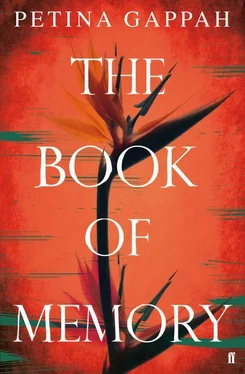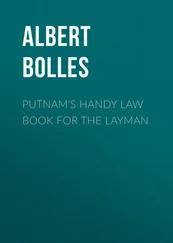I found out all about him. Like me, he was the third child in his family, but they were seven. He had gone to schools in Bulawayo and had transferred to Harare to attend the Birch School of Art. He talked to me as he worked, about the work he wanted to do and the work he had to do. No one, he said, was interested in visual art from here — it was all sculpture in serpentine and soapstone.
He wanted to be a Vermeer, a Brueghel, a Lucian Freud. He did not care for abstract art at all; he wanted to be a realist painter in the old school, he said. Until he could get to be what he wanted, he had to be what the world wanted him to be: a sculptor of headless women with jutting breasts and bulging bottoms.
He drew me on my horse, a delicate pencil sketch. I sometimes wish I had kept it — it would have been worth a lot of money now. Instead, I tore it up in the passion of my rage.
So this was love. I felt like I was riding at breakneck speed, the exhilaration tempered only by the fear that my horse would stop suddenly and I would find myself hurtling over and onto the ground. I lurched between fear and longing, between triumphant certainty and aching insecurity.
Everything was much more vivid. How lovely was the sky! And yet everything was so much more terrible. Why did time move so slowly? Why did Sister Hedwig talk so much? What mattered the French Revolution, what mattered the organic formula for lithium, what mattered the peppered moth, when there was something bigger than this classroom, than all classrooms?
He liked Queen, he liked Black Umfolosi, he liked Lovemore Majaivana. I loved Queen. I worshipped Black Umfolosi. I adored Lovemore Majaivana. He peppered the language with his own. A simple word like wena came to mean more than just you. ‘You’ was ordinary, prosaic. Wena invited me in; it said I existed to him. On his lips, the word faka , simply meaning to put, was imbued with thrilling meanings.
He laughed at my accent; until he mimicked me back to myself, I had not realised how my voice had taken on the voices of those around me. I had not realised how much of the Convent was in me, how much of Liz, of Lloyd and Sandy. I wanted to stamp out my voice. I liked the sound of his voice, the way he said bottley instead of bottle, cattley instead of cattle and wiggley when he meant wiggle. He did not take it well: we fought when he thought I was making fun of him. Imitation, in this case, was no flattery.
I shut out thoughts of Sigrid.
He was mine, not hers; rightfully mine. That is how I thought of him, in the possessive mode. There was a claim of ownership, a sense that we belonged. My claim, my stake in him, was nothing more than my love for him, but it was enough. It was everything. Sigrid’s existence simply fortified my love for him. To me, she did not exist in her own right: she existed only to test our love.
I look back now at my time with Zenzo, and then I look at my brief life with Simon, and I wonder that I should have given myself so completely to someone who so obviously did not love me. Simon wanted me; he loved me; he wanted to heal me. He gave me the very best of himself, his devotion; he plied his troth to me. All I had to do was to take what he offered.
I want to believe that I know a little more now about people than I did then. Then I thought that Zenzo was just moody. I thought that he was pouring his soul into his work. I see now that he used his art, and would always use his art, as a cover to get what he wanted, and as an excuse to be less than he knew he should be.
As I lay in his arms in that cottage on Hazlemere, I fantasised about our life together. Europe was our focus: it was where we aimed the trajectory of our dreams. He would look at paintings, and I the buildings that contained them. It was a beautiful fantasy, a dream, which came crashing down the day I found him with Lloyd.

When Loveness brought me the newspaper today after lock-up, she was in a voluble mood. She talked about her daughter. Her daughter’s condition was better, her daughter’s teachers were still bad, her daughter’s uniforms needed taking in. I wanted to say that I knew about the damn uniforms because I ironed them every week, but I said nothing and instead tried to read the headlines from the newspaper she was waving in her hand. My mind was on the election, and it was only with effort that I heard her say that her daughter’s father left her when the child was a baby. ‘He could not cope with what, with her condition.’
My mind wandered until she said, ‘Memory, did you hear me? You are eating matemba today.’
The big smile on her face suggested that I should be giddy with excitement. The Goodwill Fellowship had donated sacks and sacks of the stuff, she explained, and we were to have some for our supper. I was clearly supposed to be excited about this, which I suppose I should be, as the Goodwill Fellowship usually just donates Bibles along with lashings of sympathy. My immediate thought was that the Goodwill Fellowship must have donated more matemba fish than the prison guards could steal.
I am certain that Synodia, Loveness, Patience and the rest of the guards have not had to buy toilet rolls or sanitary pads in months. Or toothpaste. Or soap. Or washing powder. Or anything else that can be carried off to use at home. So when she said that we were to have matemba for about a month I could only imagine that they must have driven entire lorries of the stuff to the prison. We get only what the prison guards choose not to take.
It is strange how associations can come just from a fractured image, a phrase, a word, a smell. It was while she was talking of how lucky we were to have this bounty that I remembered the only time that I met Simon’s mother and father, Domenica and Hugo. I could see as soon as I met them that Simon had only told his parents where I was from, but not what I looked like.
I had developed by then the affectation of braiding my hair into long plaits that matched the colour of my skin to produce a somewhat otherworldly effect. Simon, in the first giddy moments when we could not stop touching each other, said I looked like something that lived in the water, like the Ondine.
When we sat down to dinner, Domenica startled me by asking, ‘Are you Matemba?’
‘Am I what?’ I said.
‘Matemba. That’s it, isn’t it, darling, that thing I read you the other night? It was the Matemba, wasn’t it?’
Without waiting for an answer from her husband, she continued, ‘Or was it Malemba? No, it was definitely Matemba. The Matemba people. They have a forgiveness ceremony, don’t they, darling?’ To the rest of us, she added, ‘In the middle of the night. The whole village comes out and sings. Then the person who did whatever it is stands in the middle and everyone sings, we forgive you, we forgive you.’
‘ Matemba ,’ I said, ‘are very small fish.’
‘Small fish?’
‘Yes, also called kapenta . From Zambia.’
Her husband, who had turned to speak to Simon, now broke away to hear the tail end of the conversation. ‘The Matemba people are Zambians? I thought you said they were from Zimbabwe.’
‘Well, yes, but they are fish, apparently,’ said Domenica.
She gave me a look that was almost accusatory. ‘Are you sure?’ she asked. ‘When were you last there?’
‘I have eaten the fish myself,’ I said. ‘But maybe these Matemba people have sprung to life since I left two years ago. Like the earth-grown men.’
‘Well, it must be some other Africans, then,’ she said.
Читать дальше













